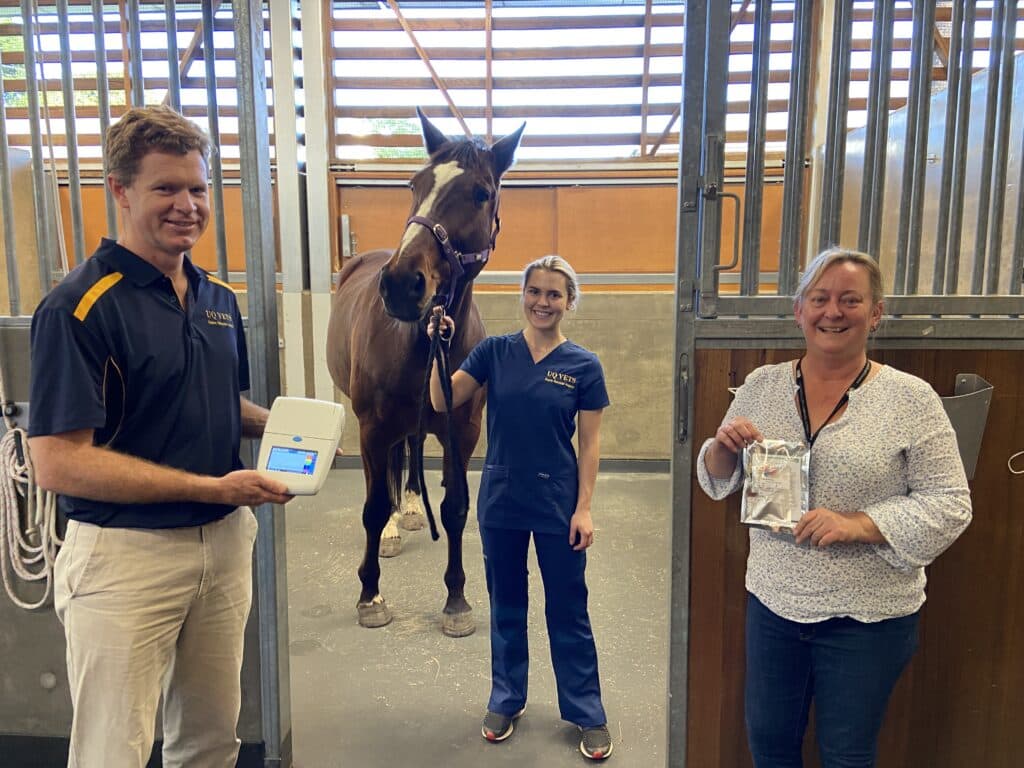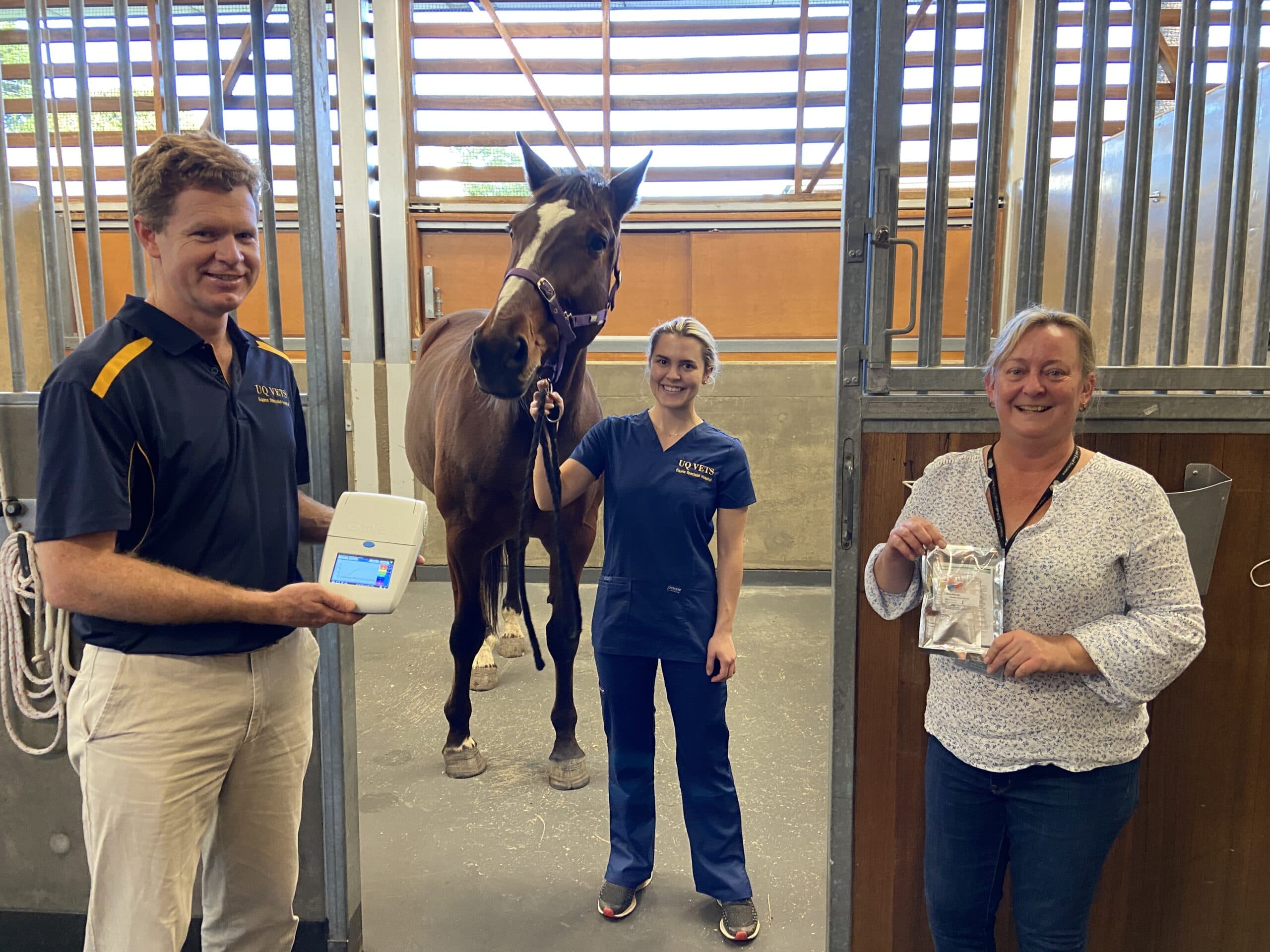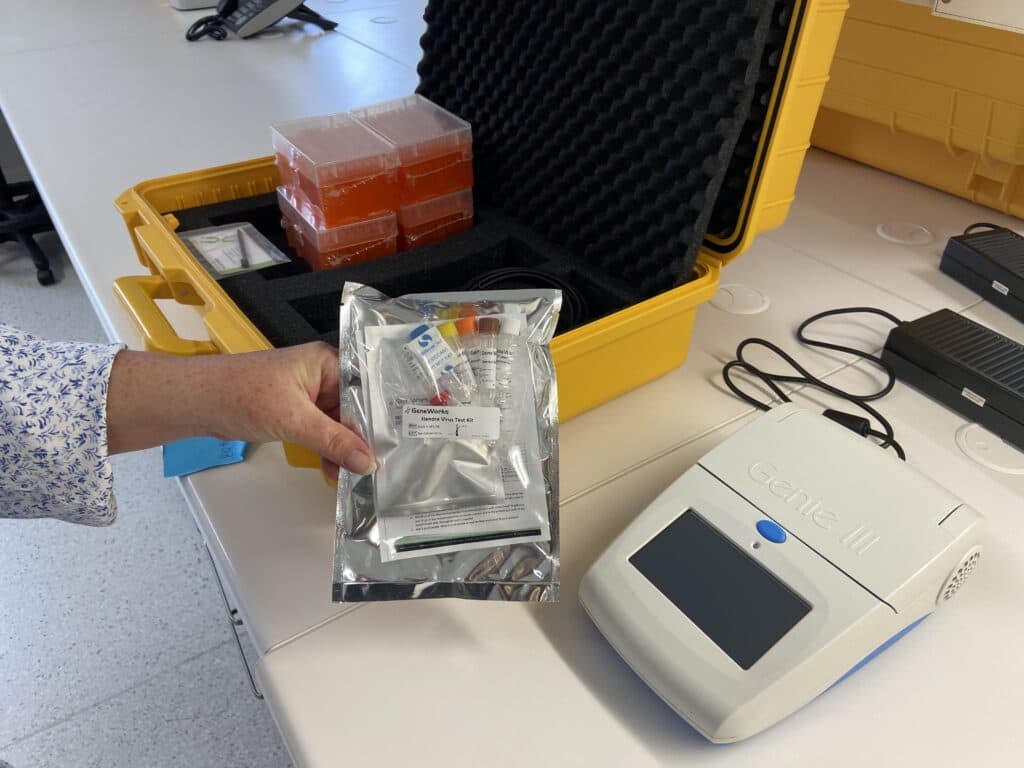Hendra virus is highly infectious and lethal. Spread to horses from flying foxes, infected horses can pass the virus from horse to horse, as well as to humans.
Lead researcher Professor Ben Ahern, from The University of Queensland, said a rapid point-of-care diagnostic test to detect Hendra infections in horses has been sorely needed for decades.
“Without vaccination, the virus has a case fatality rate of 57% among humans and 79% among horses. It’s incredibly deadly.”
“Rather than sending samples off to a lab, which risks an outbreak in the meantime, our testing protocol takes routine samples from a possibly infected horse and inactivates any virus that may be present in those samples.”
“Following a heat treatment step of samples to inactivate the virus, these non-infectious samples are then tested using a handy molecular diagnostics machine – known as a LAMP Genie III – which is about the size of a box of tissues and is battery powered and completely portable.”
“This process gives us results in under one hour, which is incredibly fast when compared to the many days it may take from collection of samples, getting them tested at an external lab and obtaining results.”
“Horses aren’t suffering in the interim and humans giving care to them can avoid becoming exposed.”
Development of the POC Hendra Virus LMAP test has advanced to the manufacturing stage and commercial kits are being produced.
Pending final approval from the Queensland Chief Veterinary Officer, the Genie machine and Hendra Virus LAMP kits will be available for veterinarians to purchase and use.
The cost and technical training required means the tests will most likely need to be performed by veterinarians, but the mobile capacity of the testing system means veterinarians can go directly to a farm for a diagnosis and treatment of horses.











